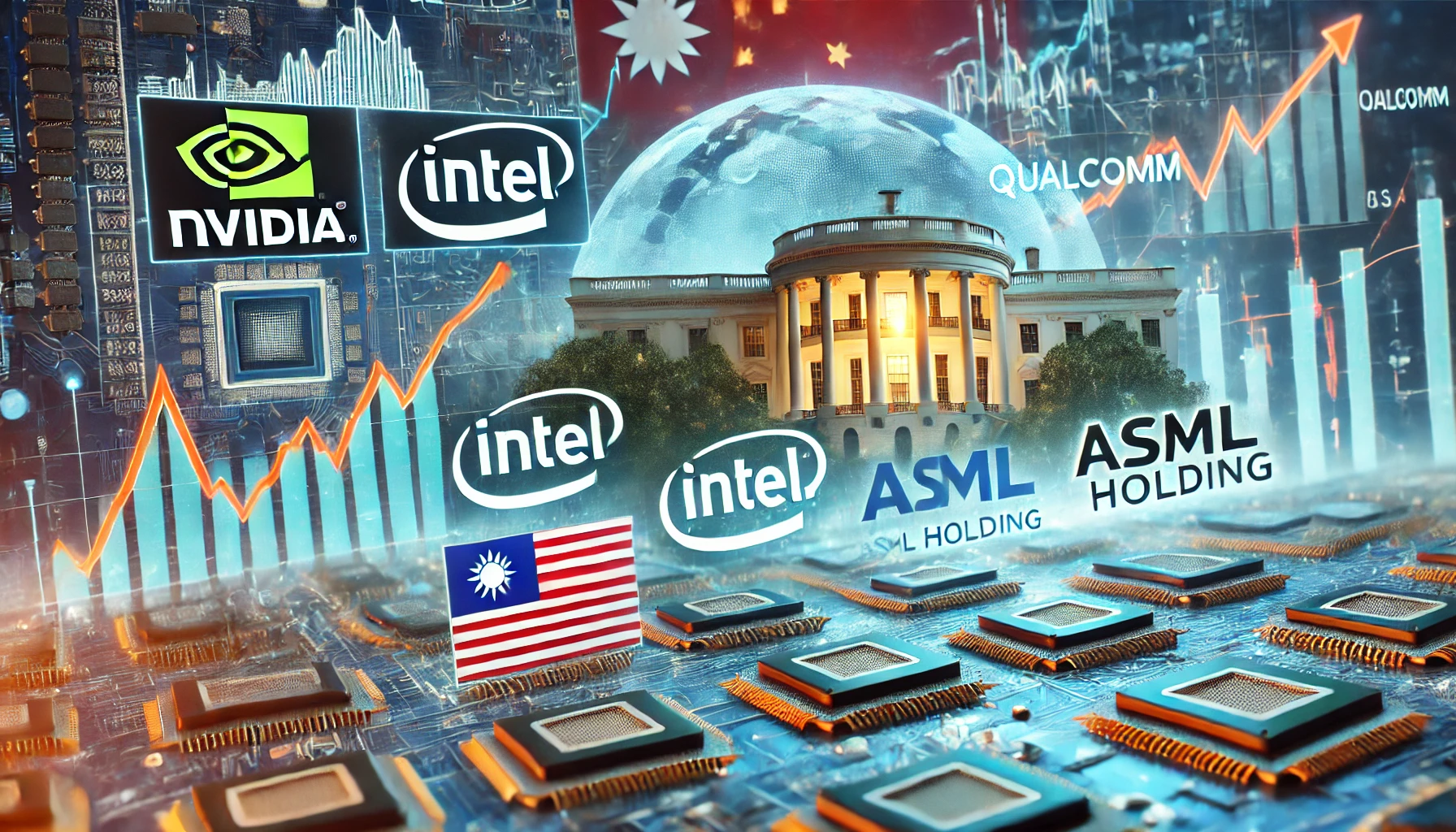
U.S.-listed shares of Dutch chipmaking equipment provider ASML Holding dropped by about 9% despite exceeding second-quarter profit estimates. Major AI company Nvidia saw its shares fall by 4%, while smaller competitor AMD lost 6.3%. Qualcomm, Micron Technology, Broadcom, and Arm Holdings also experienced declines of over 5%.
Conversely, Intel saw a 5% increase in its share price. Analysts attribute this to Intel’s efforts to build plants in the U.S. Another smaller contract manufacturer, GlobalFoundries, enjoyed a substantial rise of over 11%.
The Biden administration has recently imposed strict measures to limit China’s access to advanced chip technology, including restrictions issued in October on exporting AI processors made by firms like Nvidia. These restrictions have impacted U.S. chipmakers’ sales to China. For instance, Nvidia’s revenue from China decreased from 66% of its total revenue a year ago to 18% in the quarter ending April 28.
Former U.S. President Donald Trump commented that Taiwan should compensate the U.S. for its defense efforts, as the island nation does not provide anything in return. This statement contributed to a 6% drop in Taiwan Semiconductor Manufacturing Co’s (TSMC) U.S.-listed shares. TSMC is the world’s largest contract chipmaker and a crucial supplier of advanced processors used in various applications, from AI to military technology.
Taiwan plays a critical role in the global chip supply chain, and analysts warn that any conflict over the island could significantly disrupt the global economy. However, new facilities opening in Europe and the U.S. could reduce the industry’s dependence on Asia over the next few years, according to Derren Nathan, head of equity research at Hargreaves Lansdown.
Despite recent setbacks, chip stocks have surged this year, fueled by investor confidence in generative AI and the necessary hardware. The Philadelphia semiconductor index has risen by 39% in 2024, outperforming the S&P 500’s 18.8% gain.
Intel, investing heavily to regain its manufacturing lead after falling behind TSMC, stands to benefit significantly from the U.S. Chips Act. The company has already received $19.5 billion in federal grants and loans and hopes to secure an additional $25 billion in tax breaks.






